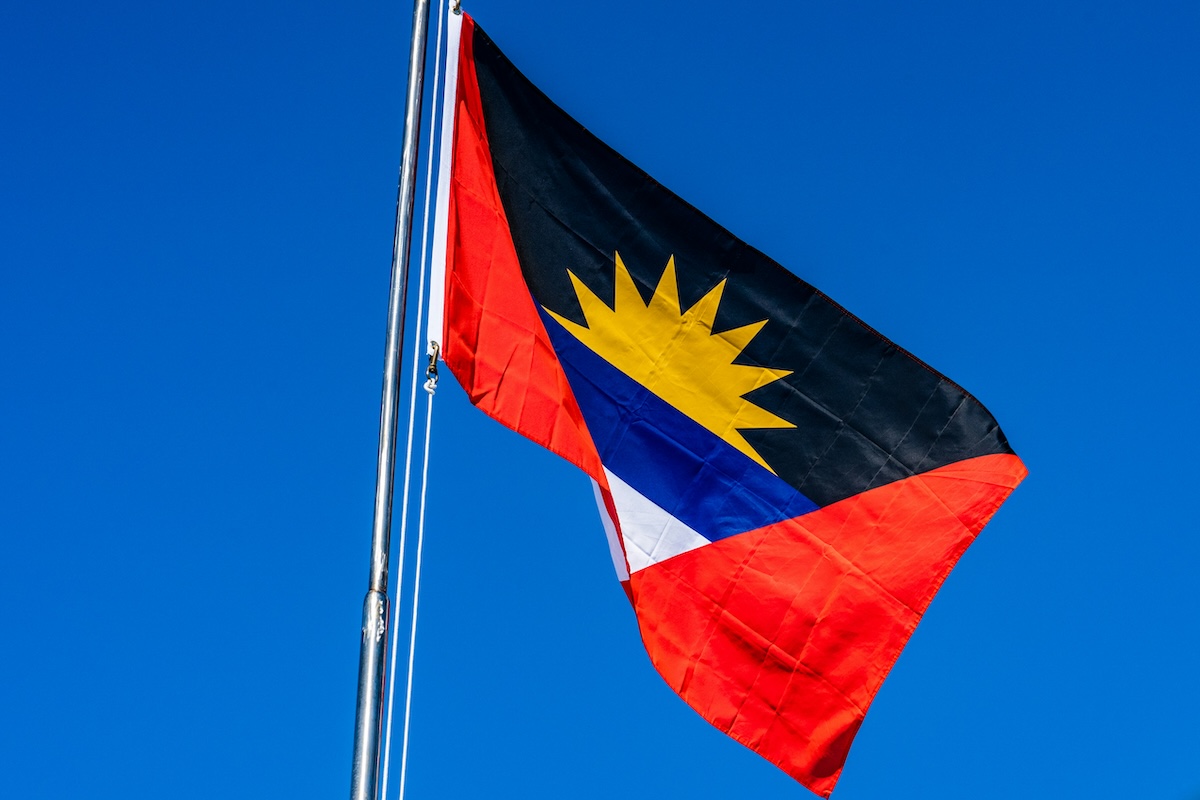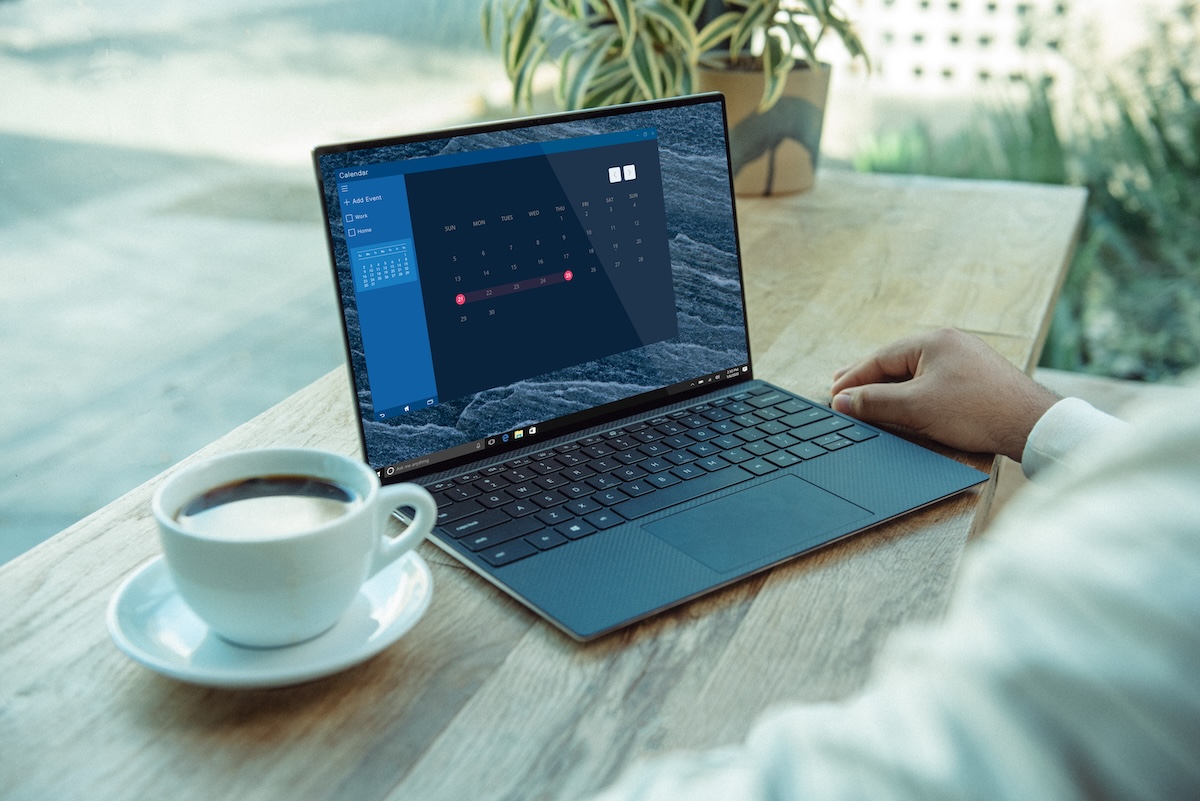By: Nahla ElKazak
Are you ready to discover a digital nomad’s paradise, where your workday blends seamlessly with gorgeous sunsets, welcoming waters, and the bright culture of the Caribbean?
Welcome to Antigua and Barbuda, where the dream of remote work and island living becomes a reality!
The Allure of Antigua and Barbuda for Digital Nomads
The twin-island nation of Antigua and Barbuda has become an irresistible option for digital nomads worldwide. Its appeal lies in its idyllic landscapes and the abundant opportunities it offers for remote work and living. From picturesque beaches to a welcoming community, Antigua and Barbuda has carved a niche as an ideal destination for those seeking an excellent work-life balance.
What Sets Antigua and Barbuda Apart from Other Nomad Destinations
One standout draw that makes Antigua and Barbuda irresistible to remote workers is the absence of income tax for successful applicants and their dependents under the Nomad Digital Residence (NDR) visa. This significant fiscal advantage is just one piece of the puzzle that makes these islands so appealing.
From the warm hospitality of the locals to the diverse accommodation options, the blend of affordability and luxury, the ease of getting around, and high-speed internet, the islands create a haven for those seeking a tax-friendly, work-from-paradise experience.
This guide will delve into every facet of the Antigua and Barbuda Digital Nomad Visa, ensuring you have all the tools to navigate this unique opportunity seamlessly. Here’s a glimpse of the topics we will explore:
- The Nomad Digital Residence Program: Your roadmap to obtaining and maximizing the NDR visa
- Cost of Living: Managing your finances and living your best island life
- Finding Accommodation: Discovering your dream island home
- Transportation and Getting Around: Navigating the islands’ offerings efficiently
- Workspaces and Internet: Ensuring productivity without compromise
- Lifestyle and Activities: Immerse yourself in local culture and adventure
- Visa Regulations and Legal Considerations: Stay informed and compliant
- Practical Tips for Digital Nomads: Expert advice for a smooth transition
Understanding Antigua and Barbuda’s Nomad Digital Residence Program
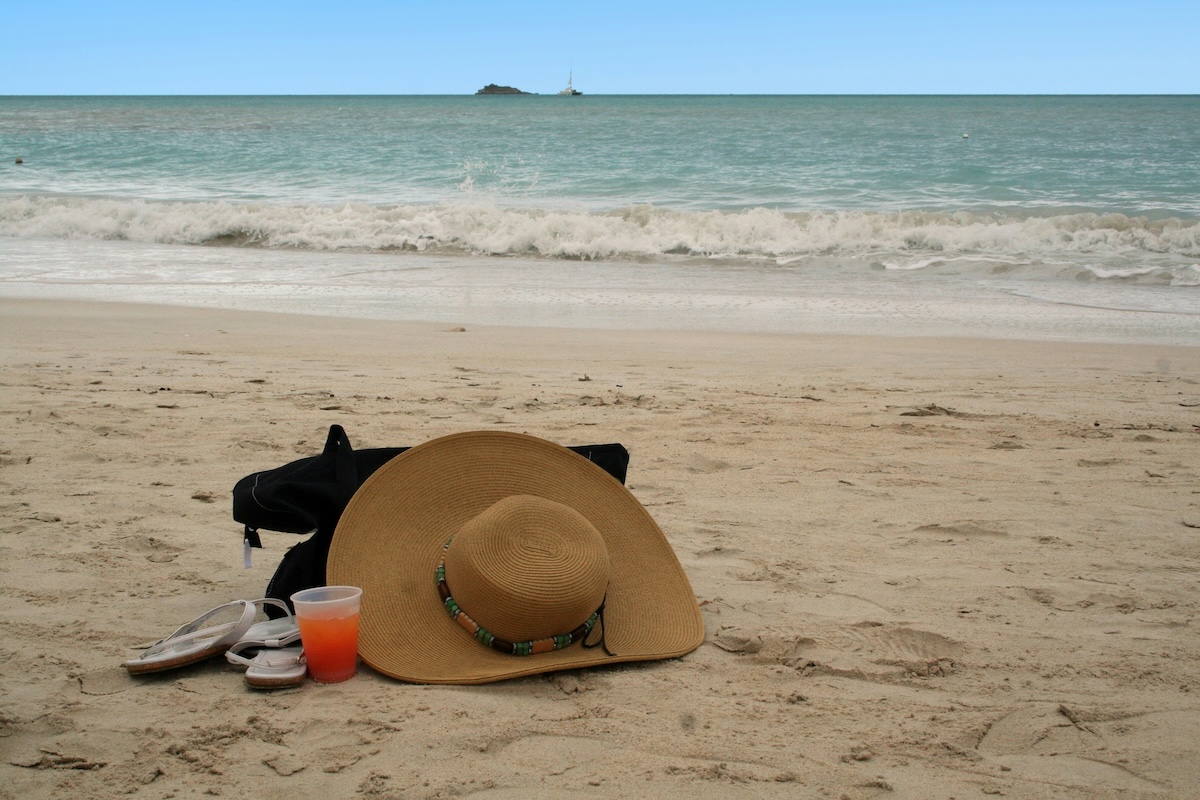
Photo by Annie Lang on Unsplash
Antigua and Barbuda has recognized the changing, more remote-friendly work landscape and has embraced the digital nomad community with open arms. The Nomad Digital Residence Program is designed to attract remote workers and freelancers worldwide. The program offers many benefits, including:
- A two-year visa
- The ability to work remotely for a company or client outside of Antigua and Barbuda
- No minimum stay requirements
- No work permit is required
- The right to open a bank account and rent property
Eligibility Criteria for the Nomad Digital Residence Program
The eligibility criteria for Antigua and Barbuda’s Nomad Digital Residence Program are pretty simple. Before you can apply, you must:
- Be over the age of 18
- Be self-employed or employed by a company outside of Antigua and Barbuda
- Have an annual income of at least $50,000
- Have a clean criminal record
Application Process and Fees
You can apply here on the Antigua and Barbuda Nomad Digital Residence visa website. Before you start your application, you must have the required documents ready. You’ll also need to pay non-refundable visa fees with your application.
Application Fees
- Single Applicant: $1,500
- Main Applicant + one dependent or a couple: $2,000
- Family—this includes you as the main applicant + up to three dependents: $3,000
- $650 for any additional dependent above the three dependents limit
Required Documents
- Two standard passport-sized photos
- A color copy of the passport bio page
- Your birth certificate
- Proof of employment or self-employment
- Proof of funds
- Security clearance from your country of residence
- Health insurance is valid for the duration of your stay in Antigua and Barbuda
- In the case of dependents, proof of relationship to the principal applicant
Once you have submitted your application and all the supporting documents, it will take 5—7 days to be processed, after which you will receive the response by email.
Cost of Living as a Digital Nomad in Antigua and Barbuda
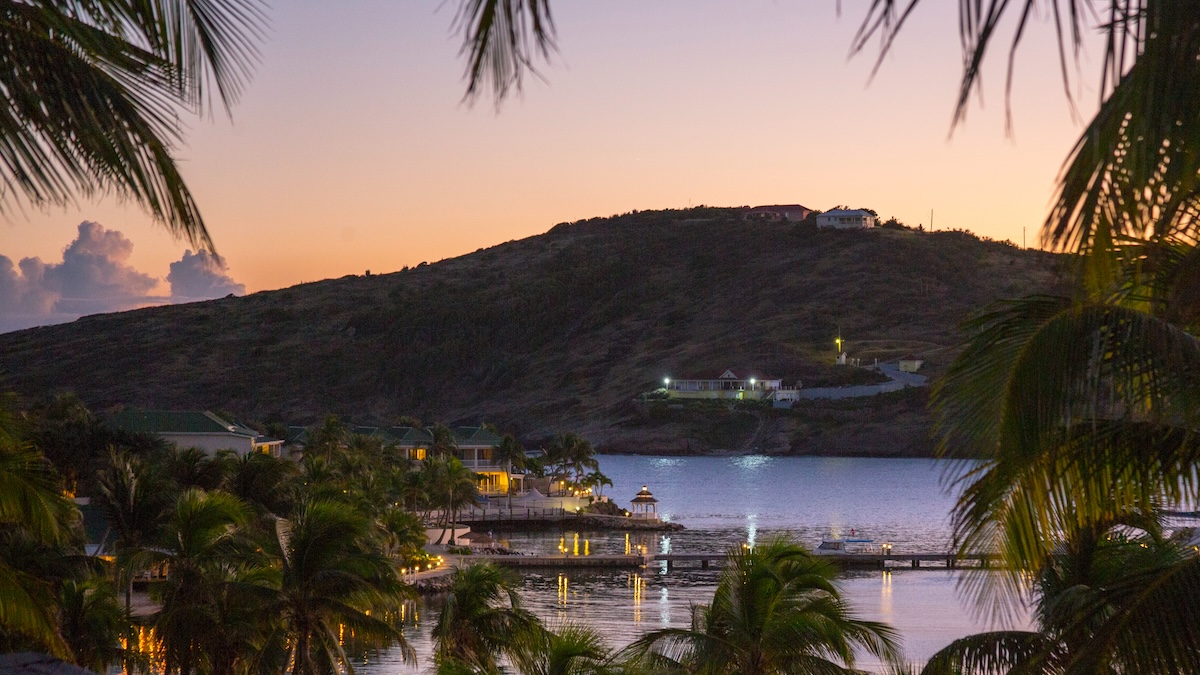
Photo by Mark Jordan on Unsplash
Living costs in Antigua and Barbuda are 20% cheaper than in the US. However, compared to other popular digital nomad destinations, Antigua and Barbuda is generally more expensive. While it may be higher than in some Southeast Asian or South American countries, it balances out with the quality of life, beautiful surroundings, and tax benefits, making it an appealing choice for remote workers seeking a memorable experience.
It is also important to note that the cost of living can vary significantly depending on your lifestyle and spending habits. For example, if you are willing to live in a less popular area or cook your own meals, you can save a lot of money.
Breakdown of Typical Costs in Antigua and Barbuda
We will break down typical costs in key areas to give you a clearer picture of life in Antigua and Barbuda. All prices are ballpark figures based on 2023 data from Numbeo, so you can plan your budget realistically before you arrive.
- Expect to spend between $740 and $1,000 to rent a one-bedroom apartment and between $1,200 and $1,800 for a three-bedroom apartment, depending on the location.
- Not including rent, your total cost of living for one month in Antigua and Barbuda should cost around $1,100.
Restaurants and Grocery Costs in Antigua and Barbuda
- A meal at an inexpensive restaurant costs about $9, while a three-course meal for one person at a mid-range restaurant can cost about $50.
- A regular cappuccino will cost about $5, while beer can cost between $2 and $3.
- A small bottle of water costs about $1.97.
Groceries in Antigua and Barbuda
Here’s a quick rundown of what you can expect to pay for everyday essentials like milk, rice, chicken, and beef.
- Milk: $8 for a gallon of regular milk
- Rice: $1.70 for a pound
- Chicken: $3.30 for a pound of filets
- Beef: $6.75 for a pound of round steak
- Water: $2.40 for a 1.5-liter bottle
Transportation Costs in Antigua and Barbuda
From hopping on the local bus for $1 to hailing a taxi or buying your own car, here’s how much it typically costs to roam the island:
- Buses: One-way rides start at $1, or purchase a monthly pass for $33.
- Taxis: Fixed fares—regulated by the government—are used rather than a metered system. A ride from Antigua airport to St John’s is about $15.50.
- Cars: Owning a Toyota Corolla (or similar) costs around $20,720; filling up the tank is about $5 per gallon.
Banking, Currency, and Financial Services for Digital Nomads in Antigua and Barbuda
Living as a digital nomad in Antigua and Barbuda requires understanding the local financial landscape. Here’s a breakdown of banking, currency, and available financial services to help you manage your finances:
Currency
- Eastern Caribbean Dollar (XCD): The official currency, pegged to the US Dollar at USD 1 = XCD 2.70. Most transactions use XCD, but USD is widely accepted, especially in tourist areas.
- International transactions: Expect fees for converting other currencies or using international ATMs. Consider opening a multi-currency account before arrival.
Banking
- Local banks: Antigua and Barbuda offers several national and international banks with branches across the islands. Popular international options with a local presence include AIB Bank, the First Caribbean Bank, and Scotiabank.
- Opening a bank account: Requirements vary, but expect to present your passport, proof of address, and possibly evidence of income. You can find the required documents listed on each bank’s website.
- Online banking: Most banks offer online banking and mobile apps for managing accounts and transactions conveniently.
Financial Services
- ATMs: Widely available, but withdrawal fees might apply. Look for affiliated ATMs to minimize charges.
- Credit cards: Major credit cards are accepted in most places but are not always reliable for smaller transactions.
- Foreign exchange: Exchange bureaus are available, but rates can vary. Compare before exchanging currencies.
Tips for Nomads
- Open a local bank account for convenience and avoid ATM fees.
- Bring a small amount of USD cash for initial expenses.
- Inform your bank about your travel plans to avoid blocked transactions.
- Research fees before using international credit cards or withdrawing money.
Finding Accommodation as a Digital Nomad in Antigua and Barbuda
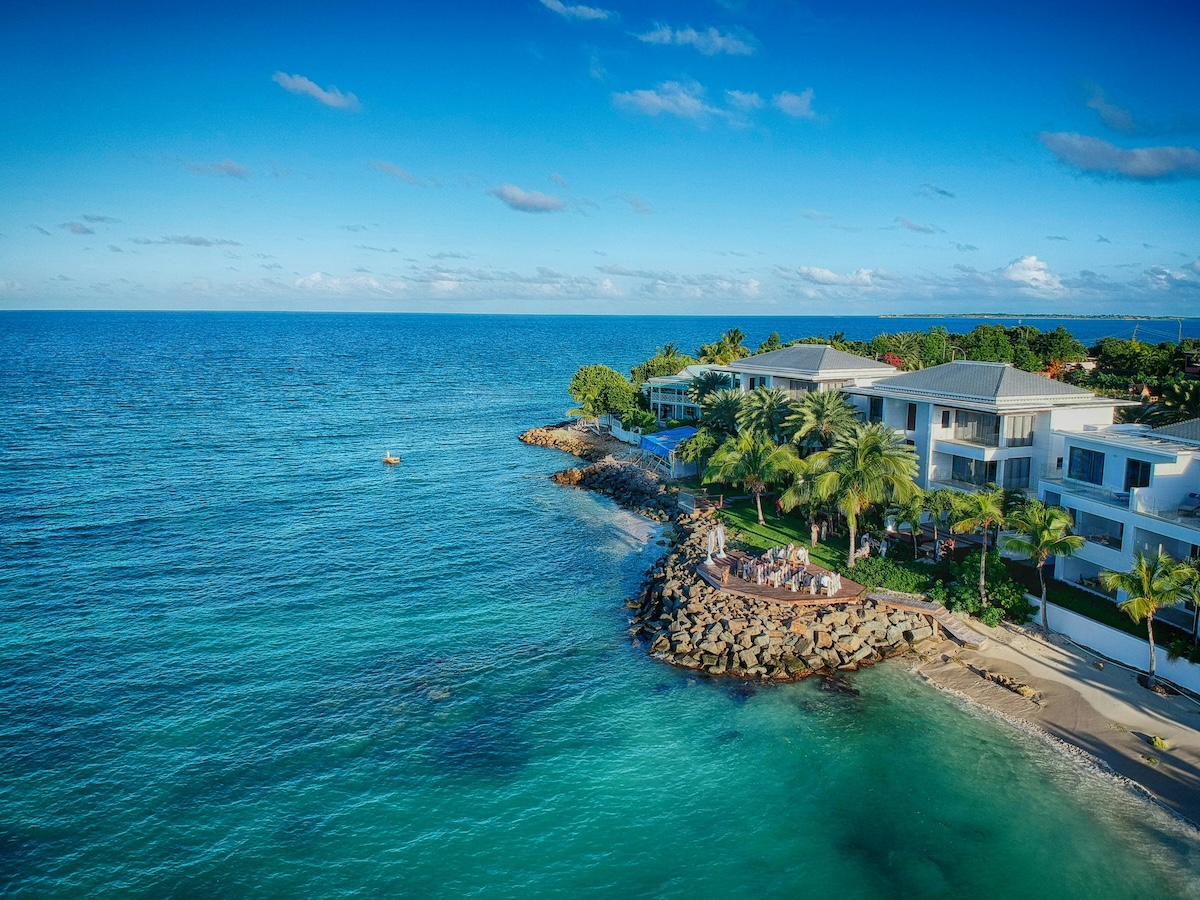
Photo by Alec Brunelle on Unsplash
Depending on your budget and needs, various housing options are available in Antigua and Barbuda. Here are some of the most popular options:
Apartments
Apartments are a good option for both short-term and long-term stays. They come in various sizes and price ranges, so you can find one that fits your needs and budget. Apartments are typically located in the city center or more suburban areas.
Townhouses
Townhouses are another popular housing option in Antigua and Barbuda. They offer more space than apartments and often have their own yards or patios. Townhouses are typically located in gated communities or more suburban areas.
Houses
If you are looking for more space and privacy, consider renting a house. Houses come in various sizes and price ranges and can be located anywhere on the island.
Villas
Villas are the most luxurious housing option in Antigua and Barbuda. They offer all the amenities of a home, plus extras like private pools, tennis courts, and golf courses. Villas are typically located in secluded areas of the island.
Other Options
In addition to the above options, there are many other housing options available in Antigua and Barbuda, such as:
- Condos
- Guesthouses
- Airbnbs
One of the best ways to find a housing option that is right for you is to contact a local real estate agent. They can help you locate a property that meets your needs and budget.
Here are some additional factors to consider when choosing a housing option in Antigua and Barbuda:
- Location: Do you want to live in the city center, in a suburban or more secluded area?
- Proximity to amenities: Do you want to live near shops, restaurants, schools, and other amenities?
- Price: How much are you willing to spend on rent?
- Size: How much space do you need?
- Amenities: What amenities are important to you, such as a pool, gym, or parking?
Once you have considered these factors, you can search for a housing option in Antigua and Barbuda.
Tips for Finding Affordable and Comfortable Places to Stay in Antigua and Barbuda
Finding long-term rentals in Antigua and Barbuda involves utilizing various online platforms and local resources. Here are some popular websites and local resources you can explore:
Online Rental Platforms
- Airbnb often has short- and long-term rental listings, including apartments, villas, and houses in Antigua and Barbuda. You can filter your search for more extended stays.
- Booking.com: Besides hotels, Booking.com also lists vacation rentals and long-term stay options. It’s worth checking for available long-term accommodation.
Networking and Word of Mouth
- Local Connections: Utilize any local contacts or network within the community. Word of mouth can lead to excellent rental opportunities.
- Networking Events: Attend local networking events or expat gatherings to meet people and gather information about potential rentals.
Additionally, watch for rental listings featured in local newspapers and posted on community bulletin boards. You can also reach out to friends and acquaintances who live in the area where you’re looking to rent for their recommendations.
Renting in Antigua and Barbuda: Negotiating Like a Local
Searching for your perfect island home goes beyond browsing listings. This section provides practical tips to negotiate a rental agreement in Antigua and Barbuda like a pro.
- Know the Market: Research typical rental prices in different areas to understand what’s fair. Talk to locals and check online platforms.
- Budget Wisely: Don’t just consider rent. Factor in utilities, maintenance, and potential rent increases to ensure you can comfortably meet your financial obligations.
- Timing is Key: Negotiate when a surplus of apartments is available, typically during the low tourist season (May to November). For existing leases, start 2—3 months before your lease expires.
- Local Expertise: Consider using local real estate agents who understand the market well. They can provide insights into fair rental prices and negotiate on your behalf.
- Inspect and Document: Check the property’s condition and document any existing damage before signing anything. Any necessary repairs or improvements can be negotiated as part of the rental agreement. This may give you bargaining power.
- Lease Terms: Negotiate terms that suit both parties. Longer leases might offer discounts, while shorter terms may align with your needs.
- Utilities and Additional Costs: Clarify which utilities are included and which you will pay for. This impacts your overall living expenses.
- Security Deposit and Payments: Discuss the deposit amount, handling, and rent payment schedule, including late fees.
- Open Communication: Maintain clear dialogue with the landlord and explore mutually beneficial solutions. Flexibility can go a long way in negotiations.
- Legal Assistance: If needed, consult a local lawyer to review the agreement and ensure its legality.
Remember, negotiation takes practice. By following these tips and balancing your needs with the landlord’s, you’ll be well-equipped to secure the perfect rental agreement.
Transportation and Getting Around Antigua and Barbuda
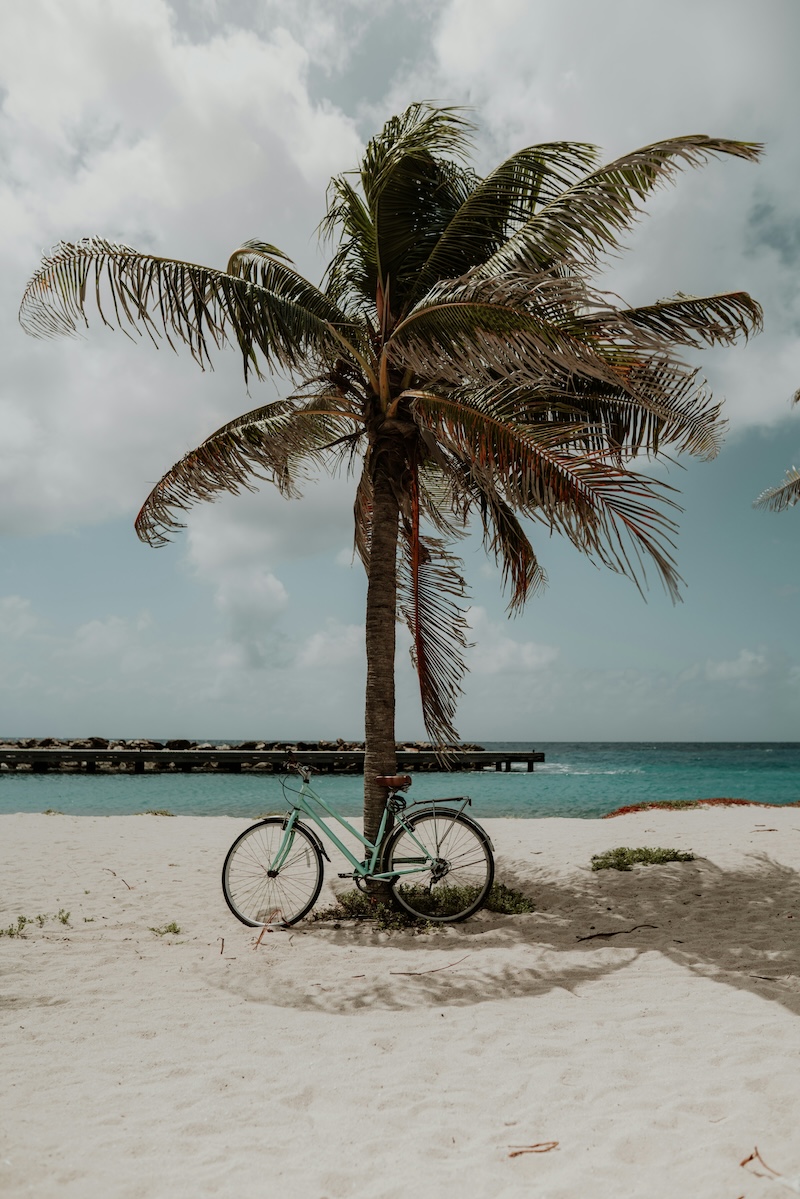
Photo by Malu Laker on Unsplash
The most efficient means of transportation in Antigua and Barbuda is by either car or taxi. A vehicle can be cost-effective, especially for extended stays; however, the island’s challenging terrain, characterized by uneven dirt roads and susceptible hilly areas prone to flooding, can make navigation a bit challenging.
Public Transportation
Antigua and Barbuda has limited public transportation options, primarily consisting of buses. These buses are often privately operated, and while they can be affordable, they may not always follow a strict schedule. It’s advisable to confirm routes and timings in advance.
Taxis
Taxis are a popular and convenient way to get around the islands. They are readily available at airports, seaports, major hotels, and tourist areas.
Taxis in Antigua and Barbuda generally don’t use meters but rather a fixed fare. The fares are set by the government, and taxi drivers should keep a copy of the rates inside their cabs. The official taxi fares can be found here.
Taxi drivers can also double as guides at an additional charge or tip. If you choose to hire your taxi driver as a tour guide, agree on the price before committing to them.
Car Rentals
Renting a car is one of the most flexible and convenient options for exploring Antigua and Barbuda. There are several international and local car rental agencies on the islands, offering a variety of vehicles to suit different preferences and budgets. It’s advisable to book in advance, especially during peak tourist seasons.
You can find here a list of rental agencies.
Driving Rules:
- Drive on the left side of the road.
- The speed limit is typically 40—50 km/h (25—30 mph) in urban areas and 65—80 km/h (40—50 mph) on highways.
- A temporary local driving permit is required. If you have a valid driver’s license from your home country, you can easily obtain it from the rental agency for a small fee.
You can find more driving advice here.
Eco-Friendly Alternatives
Walking and cycling are eco-friendly alternatives to commuting by car or public transportation. They are also a great way to stay active and healthy.
Walking
Walking is a fantastic way to explore the islands, especially within towns and cities. The compact nature of many areas in Antigua and Barbuda makes walking convenient and eco-friendly. You can stroll through bustling streets, enjoy the local architecture, and discover hidden gems leisurely. It’s an excellent option for short distances and allows you to immerse yourself in the culture.
Cycling
Cycling offers an excellent balance between efficiency and eco-friendliness. Antigua and Barbuda’s relatively small size and scenic landscapes make cycling a delightful experience.
Many areas have dedicated bike paths or low-traffic roads, making it safe and enjoyable. Several bike rental companies are on the island, and you can rent a bike for a few hours or days. Cycling is a great way to explore the island at your own pace, and it provides an up-close view of the beautiful coastlines, villages, and lush greenery.
Workspaces and Internet
While Antigua and Barbuda may not have a wide range of traditional coworking spaces, many coffee shops are known to be remote-work friendly. They provide a relaxed yet productive atmosphere with reliable internet connectivity.
An alternative to coworking spaces in Antigua and Barbuda can be to rent an apartment or hotel room that offers a comfortable workspace.
Mobile and Internet Services in Antigua and Barbuda
Antigua and Barbuda offers modern telecommunications technology, including island-wide 4G LTE advanced networks with fast data and voice coverage. Mobile upload and download speeds reach up to 30 Mbps and 10 Mbps, respectively, while fixed broadband speeds reach up to 20 Mbps and 12 Mbps.
Three leading Internet Service Providers (ISPs) operate in Antigua and Barbuda: Flow, Digicel, and APUA. Each ISP offers a variety of plans and services, including fiber optic internet, super-fast broadband, 4G/LTE mobile, landline, and television.
Once you have selected an ISP and the internet plan that best meets your needs, you can contact the ISP to arrange to install your internet connection. As a new customer, the ISP may ask you for some ID, such as your passport, and proof of residency, such as a rental contract or utility bill.
Lifestyle and Activities in Antigua and Barbuda

Photo by Agnieszka Ziomek on Unsplash
Antigua and Barbuda is more than just a sun-soaked paradise; it is a vibrant country with its own unique history, traditions, and local customs. As you explore these twin islands, you will immerse yourself in a wonderful blend of the past and the present.
Antigua’s roots trace back to indigenous Arawak and Carib tribes. The islands passed through colonial hands, primarily British, and witnessed the harshness of the sugar plantation era. Today, Antigua and Barbuda are independent nations, but remnants of their colonial past can still be seen in the English Harbour and historic Nelson’s Dockyard.
Antiguans and Barbudans take immense pride in their traditions and customs. You’ll hear steel drums and calypso music, reflecting the islands’ Afro-Caribbean heritage. Don’t be surprised if you’re invited to a spontaneous dance—a common gesture of warmth and hospitality.
Antigua and Barbuda’s Local Cuisine and Dining Options
Antigua and Barbuda offers delightful culinary options for digital nomads seeking authentic Caribbean flavors. The cuisine is a fusion of Afro-Caribbean and Creole influences, resulting in a unique and mouth-watering experience.
One must-try dish is Fungee and Pepperpot. Pepperpot, a hearty stew made with a medley of meats and vegetables, is simmered to perfection with aromatic spices. It’s a soul-warming delight! And Fungee, a cornmeal dish similar to polenta, pairs perfectly with pepperpot.
Digital nomads will also love exploring local seafood shacks scattered along the beaches. Here, you can savor freshly-caught fish, often seasoned with a secret blend of spices. It’s a simple yet incredibly satisfying dining experience—especially if you enjoy these dishes with your toes in the sand and the sound of waves in the background.
Don’t forget to indulge in the island’s famous Caribbean style Roti. This savory pastry is stuffed with curried meat or vegetables, offering fantastic flavor in every bite. It’s an ideal grab-and-go option for those busy days of work and exploration.
You will find everything from casual beachside cafes to upscale restaurants when it comes to dining options. Cuisines in Antigua and Barbuda are diverse, as you can find Italian, French, Asian, and Caribbean choices.
Cultural Experiences and Events on the Islands
Antigua and Barbuda is a cultural melting pot with influences from Africa, the Caribbean, and Europe. This diversity is reflected in the islands’ festivals and events, which offer digital nomads the opportunity to immerse themselves in the culture.
Here are just a few of the cultural experiences and events that you can participate in in Antigua and Barbuda:
Antigua Carnival
The island’s biggest and most lively event, Antigua Carnival, is a must-experience cultural extravaganza. It typically takes place in late July to early August. During Carnival, the streets are filled with music, dancing, and parades. You can join by attending parades, seeing calypso shows, and dancing the night away.
Wadadli Day
Wadadli Day is a celebration of Antiguan and Barbudan culture that takes place each February in St. John’s Botanical Gardens. On Wadadli Day, there are cultural performances, food stalls, and arts and crafts booths. Participating in Wadadli Day will help you learn about the local culture, plus you can try traditional dishes and buy souvenirs.
Antigua Sailing Week
Antigua Sailing Week is one of the largest regattas in the world. It takes place in late April till early May each year and attracts sailors from all over the world. You don’t have to participate in the race to have fun during this week-long event. You can watch the races, attend social events, or even volunteer.
Antigua and Barbuda International Kite Festival
The Antigua and Barbuda International Kite Festival is an exciting event that brings together locals and visitors to celebrate the art of kite flying. This festival typically takes place on Easter weekend, when the windy season is at its peak.
The festival is a unique cultural experience that offers an opportunity to connect with the community and fellow travelers. It is a must-visit event for anyone seeking an authentic and engaging cultural immersion in Antigua and Barbuda.
Seafood Festival
For seafood enthusiasts, the Seafood Festival at Urlings Wharf is a delectable event not to be missed. Taking place in August, after the Carnival weekend, this festival is a seafood lover’s paradise and a highlight of the summer.
At the festival, you can savor an array of fresh seafood caught right from the Caribbean waters. From succulent lobster to mouthwatering crab, the options are abundant.
What sets this event apart is not just the delicious seafood but also the festive atmosphere. Local musicians often provide live entertainment, adding to the vibrant ambiance. It’s a beautiful opportunity to mingle with locals and fellow travelers while enjoying the best of Antiguan and Barbudan maritime cuisine.
You can check here for the calendar of all-year-long events in Antigua and Barbuda. You can also check this guide for heritage sites in Antigua and Barbuda.
Visa Regulations and Legal Considerations
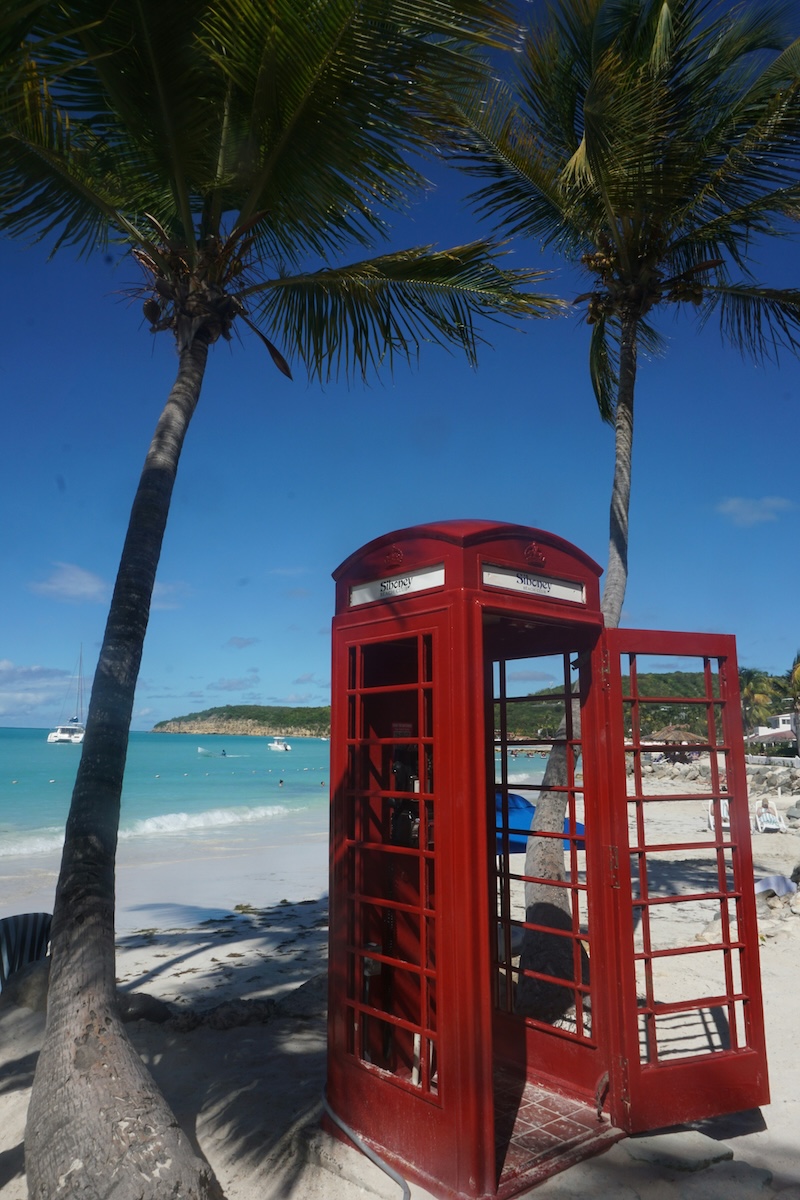
Photo by Sarah Kilian on Unsplash
Beyond the Nomad Digital Residence Program: Visa Options for Longer Stays
While the Nomad Digital Residence Program offers a streamlined pathway to residency for digital nomads, it’s not the only option available to travelers. Antigua and Barbuda presents many opportunities to extend your stay, allowing you to immerse yourself fully in the vibrant Caribbean culture and landscape.
Antigua and Barbuda Citizenship by Investment
The Citizenship by Investment (CBI) program provides a path to full citizenship for those seeking a more permanent connection to Antigua and Barbuda. By making a qualifying investment, individuals can gain the rights and privileges of an Antiguan and Barbudan citizen, including visa-free travel to over 130 countries and territories.
Eligibility Requirements for Citizenship by Investment
- Main applicant must be at least 18 years of age
- Clean criminal record
- Choose one of the following investment options:
- A non-refundable payment to the University of the West Indies Fund (UWI) of a minimum of $150,000 for a family of six or more. This option entitles one family member to a one-year scholarship—tuition only—at the University of the West Indies. More details here.
- One-time contribution to the National Development Fund (NDF) of a minimum of $100,000 for a single applicant or a family of four or less, or $125,000 for a family of five or more, in addition to $30,000 processing fees. Full details here.
- Purchase real estate with a minimum value of $200,000 from an approved real estate project. You can check further details here.
- Direct purchase of an eligible business for a minimum amount of $1.5 million as an individual or a joint purchase of an eligible business for a minimum amount of USD 5 million, with each person contributing at least $400,000. Full details here.
For all the required documents and more details about the application process, you can visit the Citizenship by Investment in Antigua and Barbuda website here.
Antigua and Barbuda Tax Residency
Digital nomads seeking to establish tax residency in Antigua and Barbuda can enjoy a favorable tax regime. The country has no income tax, capital gains tax, inheritance tax, or wealth tax on foreign-sourced (worldwide) income, making it an attractive destination for entrepreneurs and remote workers.
Eligibility Requirements for Tax Residency
- Have a physical presence in Antigua and Barbuda for at least 30 days per calendar year
- Maintain a permanent address in Antigua and Barbuda
- Have an annual income of $100,000 or higher
- Pay a flat tax of $20,000 per year
Once your application is approved, you will be issued a permanent residency certificate and a tax identification number.
Other Visa Options for Long-Term Stays in Antigua and Barbuda
Beyond the Nomad Digital Residence Program, Citizenship by Investment, and Tax Residency, Antigua and Barbuda offers other visa options tailored to your specific needs:
- Work Permit: Required for individuals seeking employment in Antigua and Barbuda.
- Student Visa: Required for individuals pursuing studies in Antigua and Barbuda.
- Family Reunion Visa: Required for spouses, children, and parents of Antiguan and Barbudan citizens.
- Business Visa: Required for individuals conducting business activities in Antigua and Barbuda.
After you have legally spent four uninterrupted years or more in Antigua and Barbuda, you can apply for a resident permit. You can check the requirements on the Antigua and Barbuda Immigration website and the residency permit FAQs.
Potential Legal and Tax Considerations for Digital Nomads Staying in Antigua and Barbuda
As a digital nomad in Antigua and Barbuda, navigating the legal and tax landscape is critical to avoiding hiccups and enjoying a smooth, compliant stay.
Legal Considerations
Restrictions on Working for Local Entities for Digital Nomads in Antigua and Barbuda
Antigua and Barbuda’s Nomad Digital Residence Program (NDR) is designed to attract remote workers who are not employed by local companies. This restriction is in place to protect the local labor market and ensure that digital nomads are not competing with Antiguan and Barbudan citizens or residents for jobs.
The government of Antigua and Barbuda recognizes the importance of attracting digital nomads to the country, as this encourages digital nomads to contribute to the economy through other means, such as purchasing goods and services and investing in local businesses. At the same time, the country’s authorities want to ensure that local workers are not disadvantaged.
As a digital nomad on an NDR visa, you’re not allowed to:
- Work for or be employed by a company or organization based in Antigua and Barbuda
- Receive any income from a local entity, including salary, wages, or commissions
- Provide services to local companies or individuals
- Establish or operate a business in Antigua and Barbuda without obtaining the necessary business licenses and permits
If you wish to work for a local company or generate income from sources within Antigua and Barbuda, you must apply for a Work Permit. The Work Permit process involves demonstrating that there is a shortage of qualified Antiguan and Barbudan citizens or residents to fill the position, and obtaining approval from the Department of Labor.
If you are unsure whether your activities are permitted under the NDR visa, consult an immigration attorney or contact the Department of Immigration for clarification.
Overstaying Your Visa as a Digital Nomad in Antigua and Barbuda
In Antigua and Barbuda, overstaying your visa can lead to complications and potential legal repercussions. Understanding the visa requirements and proactively applying for the appropriate visa is crucial for a seamless and compliant stay.
Visa Duration and Overstay Implications
The duration of your visa determines the length of time you are legally authorized to stay in Antigua and Barbuda. Exceeding this period without obtaining an extension or applying for a different visa category is considered an overstay. Overstaying your visa can result in the following:
- Fines and penalties: You may be subject to administrative fines for each day you overstay. The specific amount varies depending on the visa type and the length of overstay.
- Deportation: In severe cases, extended overstays or repeat offenses may lead to deportation, prohibiting you from re-entering Antigua and Barbuda for a specified period.
- Difficulties in obtaining future visas: An overstay record can make obtaining visas for other countries difficult, affecting your travel plans and potentially hindering your digital nomad lifestyle.
Avoiding Overstays: Proactive Visa Management
To ensure a smooth and legal stay, it’s essential to manage your visa status proactively:
- Understand Your Visa Duration: Under the Nomad Digital Residence program, you’re allowed to stay for up to two years. If you arrive in Antigua and Barbuda using any other visa type, carefully review your visa’s validity period. This information is typically stamped on your passport or visa document.
- Plan Your Stay: Plan your stay within the confines of your visa duration. Consider travel plans, work commitments, and potential visa extensions.
- Apply for Extensions or Visa Changes: If you need to extend your stay beyond the initial visa duration, apply for an extension well in advance. You may also consider applying for a different visa category if your circumstances change.
- Seek Guidance: If you have any doubts or questions regarding visa requirements or overstay implications, consult an immigration attorney or contact the Department of Immigration for more details.
By proactively managing your visa status, you can avoid the legal and logistical hassles associated with overstaying. This approach ensures compliance with local regulations and maintains your eligibility for future travel.
Taxes for Digital Nomads Living in Antigua and Barbuda
Unlike many countries, Antigua and Barbuda imposes no personal income tax on foreign-sourced income, meaning digital nomads can enjoy the fruits of their labor without the burden of local income taxation. This tax exemption extends to wealth, inheritance, and capital gains.
Tax Exemption on Foreign-Sourced Income
The cornerstone of Antigua and Barbuda’s attractiveness to digital nomads is the exemption from personal income tax on foreign-sourced income. This means that digital nomads working remotely for companies or clients outside Antigua and Barbuda are not liable to pay any local income tax on their earnings. This exemption applies to all forms of employment income, including salaries, wages, commissions, and freelance fees.
Tax Considerations for Home Countries
While Antigua and Barbuda offers a favorable tax regime for digital nomads, it’s important to remember that you may still be subject to taxes in your home country. You should consult with a tax advisor in your home country to understand your specific tax obligations and ensure compliance with all applicable laws.
Healthcare and Safety for Digital Nomads in Antigua and Barbuda
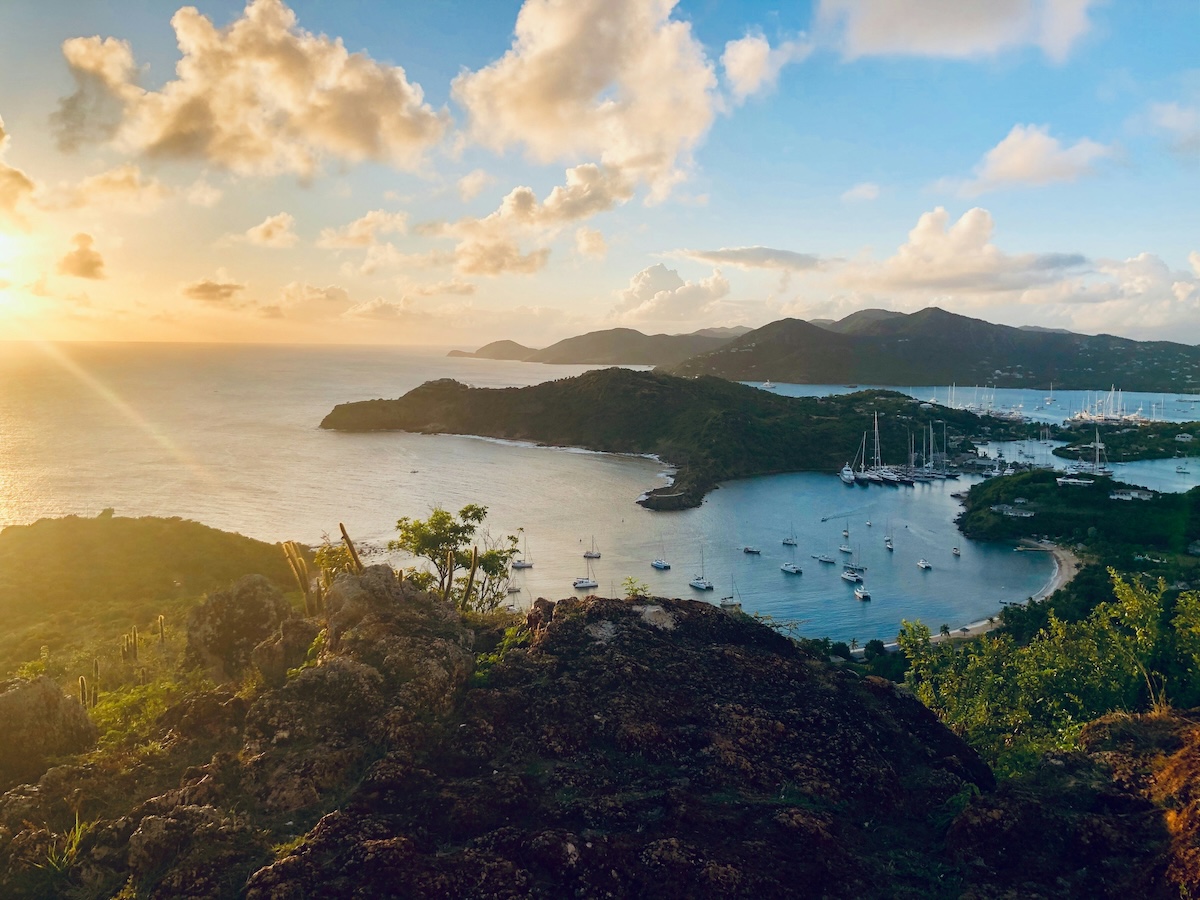
Photo by Rick Jamison on Unsplash
As a digital nomad living in Antigua and Barbuda, ensuring access to quality healthcare is critical. This section provides you with a detailed overview of the healthcare landscape in these Caribbean islands. From the modern facilities at Mount St. John’s Medical Center to the community health facilities and private healthcare options network, we aim to equip you with essential insights into healthcare services, facilities, and insurance options.
Healthcare Facilities
Antigua and Barbuda has a relatively well-developed healthcare system, with a mix of public and private hospitals and clinics. The government funds the public healthcare system and provides free care to all citizens and permanent residents. Private healthcare facilities offer a more comprehensive range of services and amenities but typically come with higher costs.
Although all citizens and foreigners can use Antigua and Barbuda’s public healthcare system, only citizens and permanent residents can enroll, giving them access to free healthcare. Foreigners can still utilize the public healthcare system, but not for free.
In Antigua and Barbuda, expats and digital nomads primarily use the private healthcare system. While private hospitals generally cost more than their public counterparts, they offer superior care when it comes to major surgeries and medical emergencies.
Antigua and Barbuda’s healthcare system is split into six medical zones or districts, each led by a district medical officer overseeing healthcare provision within their designated area. To ensure convenient access to primary care, health centers are strategically located within a 3-kilometer (1.8-mile) radius of every major community.
Antigua’s primary public medical care facility is Mount St. John’s Medical Center in St. John’s. The Mount St. John’s Medical Center adheres to international standards and boasts a comprehensive range of services.
You can always refer to the Ministry of Health website for a complete list of Antigua and Barbuda’s medical centers and pharmacies.
Insurance Options for Digital Nomads
Securing adequate health insurance is crucial for any digital nomad, and Antigua and Barbuda is no exception. When you apply for the Nomad Digital Residence Visa in Antigua and Barbuda, you must provide proof of valid health insurance for your entire stay.
While the islands offer a mix of public and private healthcare options, navigating it as a temporary resident can be tricky. Here, we’ll break down your insurance options, ensuring you’re covered and can relax and enjoy your stay.
There are typically two types of health insurance when traveling abroad: travel insurance and international or expat medical insurance.
International Medical Insurance
- Offers comprehensive coverage for medical expenses abroad, including hospital stays, doctor visits, and prescriptions
- Look for plans with global coverage and specific benefits like emergency medical evacuation
Travel Medical Insurance
- Ideal for shorter stays (usually under 12 months)
- Covers sudden illness or injury during your trip, often excluding pre-existing conditions
- Can be more affordable than international health insurance but may have lower coverage limits
As a digital nomad planning to stay for up to two years—the limit of your NDR visa—getting international (or expat) health insurance would be your best option.
Additional Tips
- Compare multiple plans: Different plans offer varying coverage and pricing, so research before committing
- Read the fine print: Pay close attention to exclusions, deductibles, and limitations
- Consider your personal needs: Choose a plan that aligns with your health history, activity level, and expected medical expenses
- Consult a broker: An insurance broker can help you navigate the options and find the best fit for your needs
Tips For Maintaining Health and Safety During Your Stay
Moving to a new tropical paradise like Antigua and Barbuda brings excitement and adventure, but it’s also important to prioritize your health and safety! Here are some essential tips to keep in mind:
Before You Arrive
- Visit your doctor: Schedule a checkup 4—6 weeks before departure. Discuss your travel plans and obtain any necessary vaccinations.
- Pack smart: Stock up on enough prescription medications in their original, labeled containers to last your entire stay. Bring your primary doctor’s signed and dated letter detailing your medical history and medications. Make sure you check the CDC healthy travel packing list for Antigua and Barbuda.
- Secure health insurance: Ensure comprehensive health insurance covers medical emergencies, hospitalization, and outpatient care. Confirm accessibility of funds to cover medical expenses and potential repatriation.
During Your Stay
- Sun protection: The Caribbean sun is powerful! Apply sunscreen with SPF 30 or higher. Wear sun hats and protective clothing. Seek shade during peak hours (10am—4pm).
- Hydration: Stay hydrated by drinking plenty of water throughout the day, especially in hot and humid weather. Don’t forget to eat salty snacks if you spend long hours outside in the heat to compensate for the salt lost through sweating. Avoid excessive alcohol consumption, which can contribute to dehydration.
- Mosquitoes and insects: Use insect repellent containing 20% or more DEET to prevent mosquito bites, especially during dusk and dawn. Consider mosquito nets for sleeping areas.
- Food and water safety: Stick to bottled or boiled water. Be cautious when consuming street food and undercooked seafood. Wash fruits and vegetables thoroughly before eating.
- Physical activity: Enjoy the beautiful outdoors, but be mindful of the tropical climate and adjust your activity levels accordingly. Stay cool and hydrated when exercising.
- Mental well-being: Moving to a new place can be challenging. Prioritize your mental health by maintaining routines, connecting with others, and seeking support if needed.
- Adventure responsibly: When exploring the islands, beware of potential hazards like strong currents, riptides, and uneven terrain. Take necessary precautions and avoid unnecessary risks.
For the updated list of vaccinations and travel health notices for Antigua and Barbuda, visit the CDC page here at least a month before your trip.
Generally speaking, Antigua and Barbuda are very safe. And practicing the same common sense you would at home is always good advice.
Practical Tips for Digital Nomads Living in Antigua and Barbuda
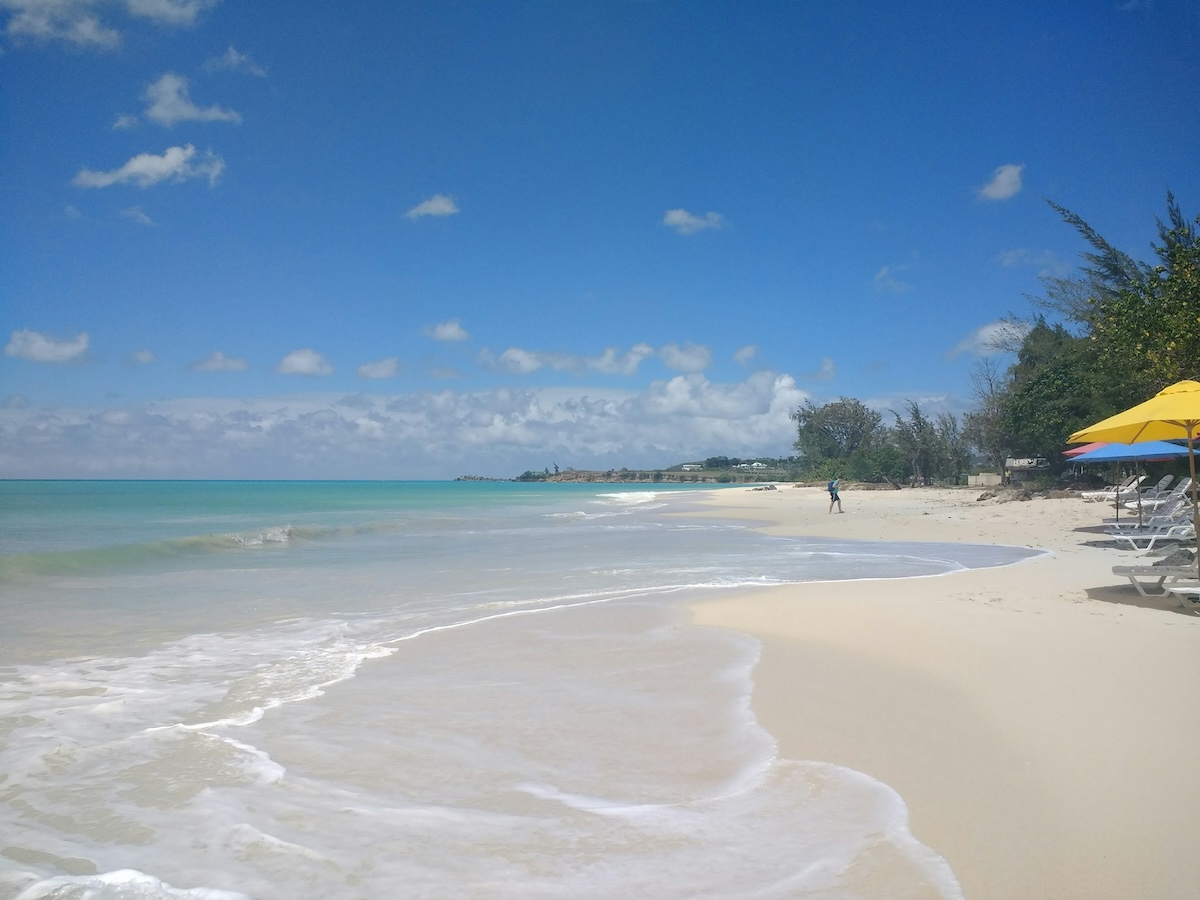
Photo by Kelcie Papp on Unsplash
Here’s how to seamlessly blend into the laid-back Antiguan rhythm:
Island Time: Embrace the unhurried pace. Don’t sweat delays, ditch the FOMO, and “lime” like a pro (join chill hangouts). In the islands, punctuality may be a souvenir you leave behind, but the memories you make will last a lifetime.
Shop Local: Skip the sterile aisles and embrace the vibrant markets. Support island vendors by choosing fresh produce and going eco-friendly. Connect with the friendly locals and discover hidden gems.
Cultural Respect: Dress modestly in sacred spaces, learn basic patois phrases to show appreciation, and immerse yourself in the island’s rich history and diverse communities. Respect goes a long way in building genuine connections.
Find Your Community: Connect with other nomads, expats, and locals through online forums, community groups, and shared passions. Join a beach volleyball game, participate in a cooking class, or attend a local event. Discover the island’s spirit through its people.
Unleash Your Inner Explorer: Don’t just work from a beach cafe (although that’s tempting!). Immerse yourself in the vibrant Carnival, learn to drum with local musicians, or join a cricket match. Be spontaneous and embrace unexpected adventures. Island life is full of hidden gems waiting to be discovered.
Respect the Island: Pack out what you pack in, respect wildlife, and explore sustainably. Be a responsible guardian of the stunning ecosystems. The island’s beauty, from coral reefs to lush rainforests, depends on your care.
Remember, it’s not about becoming something you’re not but appreciating the island’s unique flavor. Slow down, embrace the culture, and respect the environment. Doing so will unlock a richer and more authentic experience in Antigua and Barbuda.
Resources for Staying Updated on Local News and Events
It’s essential to stay informed about local happenings for an enriching digital nomad experience. Here are some resources to keep you in the loop:
- Antigua Newsroom: Comprehensive local news coverage, updated regularly.
- Antigua Events: Comprehensive local events calendar, from festivals and concerts to sports and cultural activities.
- Local Radio: Tune into local radio stations for news, music, and community announcements.
- Follow local businesses and organizations on social media: Many island businesses host events and workshops, so get notified directly.
- Strike up conversations with locals: They’re often the best source for hidden gems and authentic experiences.
Key Takeaways and Benefits of Antigua and Barbuda for Digital Nomads
We hope you’re already imagining yourself working from a hammock, taking breaks for island swims, and living the Antigua and Barbuda dream! Let’s revisit the key takeaways that make this twin-island nation a compelling choice for digital nomads:
Benefits
- Tax-free paradise: Secure a 2-year visa with no income tax under the Nomad Digital Residence program.
- Cost of living: While slightly higher than some destinations, it balances with quality of life, beauty, and tax benefits.
- Island lifestyle: Pristine beaches, warm culture, diverse accommodation options, and a blend of affordability and luxury.
- Remote work haven: High-speed internet, excellent workplaces, and ease of getting around ensure smooth productivity.
- Tax residency with favorable rates for entrepreneurs and remote workers.
- Citizenship by Investment program for permanent residency and visa-free travel.
- Legal considerations: visa restrictions, overstay implications, and tax requirements.
- Healthcare: modern facilities, insurance options, and safety tips.
Ideal for…
- Remote workers seeking a tax-free, work-from-paradise experience.
- Digital nomads who value beautiful surroundings, a welcoming community, and a relaxed lifestyle.
- Entrepreneurs and freelancers looking for a unique and inspiring base for their work.
Remember
- Research the visa application process and requirements thoroughly.
- Plan your budget considering your preferred lifestyle and spending habits.
- Embrace the island culture and explore the beauty Antigua and Barbuda has to offer.
Antigua and Barbuda awaits to welcome you to your digital nomad paradise!
About the Author
Nahla ElKazak is a freelance writer with a business background that comes from working in the IT industry for over 12 years. She has a BA in English Literature and writes about a variety of topics. When she’s not working on a project, she’s either reading, working out, or hanging out with good company. She often spends her out-of-town time hiking. You can follow her on Twitter and LinkedIn.
Featured image by chris robert on Unsplash
Frayed Passport is a participant in the Amazon Associates Program, an affiliate advertising program designed to provide a means for sites to earn advertising fees by advertising and linking to Amazon.com. We also may share links to other affiliates and sponsors in articles across our website. If you have questions or concerns, please contact us.

